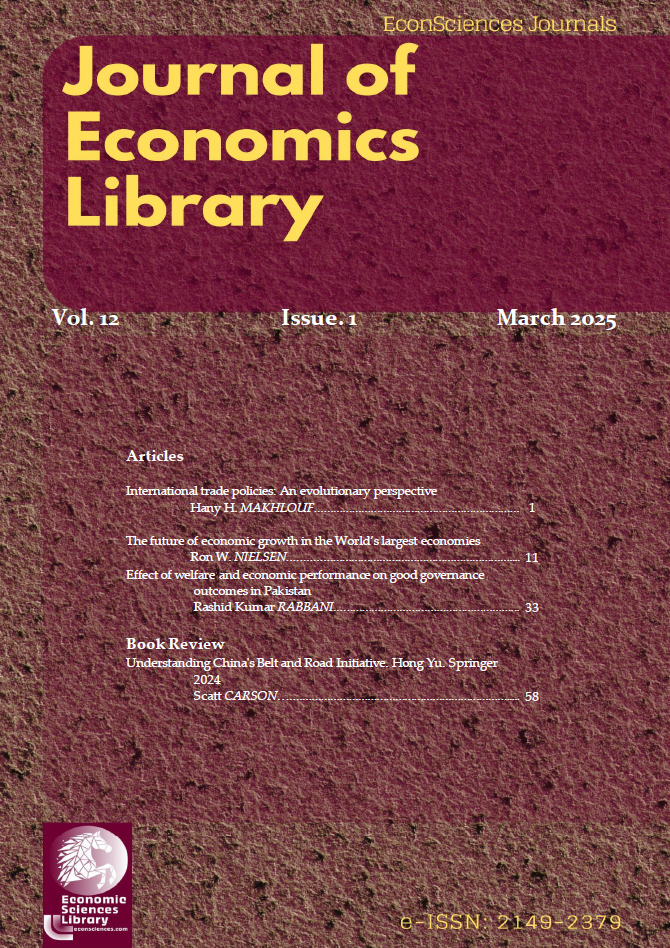Abstract
The paper undertakes a detailed analysis of economic progress and welfare measures in determining good governance outcomes in Pakistan. There is evidence that inequality stifles the capacity of political, economic and social governance by creating an elite class that protect their economic and political interests and undertake legislation primarily to the benefit of ruling elites. Furthermore our results also suggest that economic development empower the economically and socially excluded groups of the society and give them more voice in favor of policies that are representative of the issues like accountability against corruption or favoritism.
Keywords. Governance, Welfare, Economic development.
JEL. D60, D61, D63.
References
United Nations, (2015). World Population Prospects: The 2015 Revision. New York: United Nations. [Retrieved from].
US Census Bureau, (2018). International Data Base. [Retrieved from].
Artzrouni, M., & Komlos, J. (1985). Population growth through history and the escape from the Malthusian Trap: A homeostatic simulation model. Genus, 41, 21-39.
World Bank, (2015). GDP Statistics from the World Bank, [Retrieved from].
World Bank, (2017). World Development Indicators. [Retrieved from].

This work is licensed under a Creative Commons Attribution-NonCommercial 4.0 International License.
